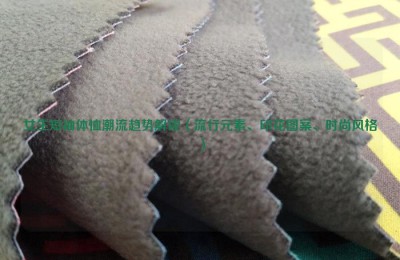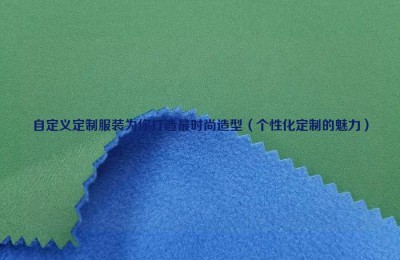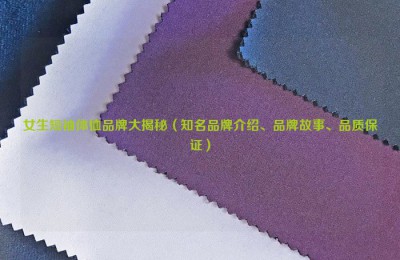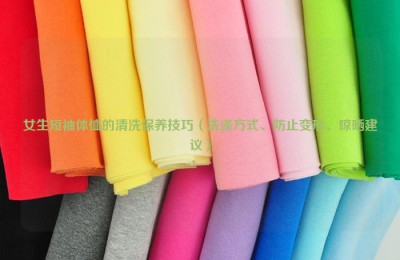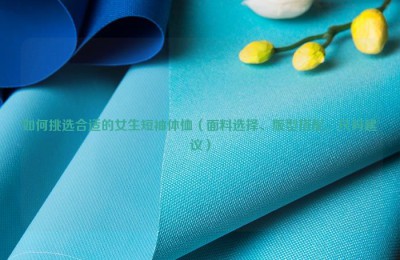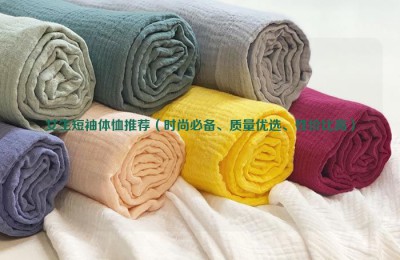On May 16, Shanghai’s press conference on epidemic prevention and control announced that the city’s epidemic had been effectively controlled and the prevention and control work had achieved phased results. From June 1 to mid-to-late June, under the premise of strictly preventing the rebound of the epidemic and keeping risks under control, normalized management of epidemic prevention and control will be fully implemented to restore normal production and living order in Shanghai. For more than a month, the textile supply chain in Shanghai and even the Yangtze River Delta region has been severely impacted by the epidemic. The news that Shanghai will gradually promote the resumption of work and production has brought hope and confidence to the textile industry.
State-owned enterprises show their responsibility
Facing the gradual resumption of work and production in Shanghai, Ji Shengjun, President of Oriental International Group, said in an interview with reporters: “Each company in the group must grasp the rhythm of normalized epidemic prevention and control and resumption of work and production, ensure production and supply of materials, Business operations have been stable and work and production have been resumed in an orderly manner.”
It is understood that in order to coordinate epidemic prevention and control and resumption of work and production, the raw material companies affiliated to Oriental International Group regard each park as a front-line position, conscientiously implement daily epidemic prevention work, actively communicate with the district commerce committee and streets, and do a good job The declaration of “white list” and enterprise location code lays a solid foundation for the resumption of work and production.
While continuously improving the epidemic prevention work management plan, Defulun Company, a subsidiary of Oriental International Group, has purchased sufficient epidemic prevention materials to prepare for the full resumption of work and production. Especially after the Shanghai Municipal Government proposed relevant arrangements for resumption of work and production, Defulun immediately formulated a work plan, implemented work measures, and strictly fulfilled various prevention and control requirements. After the company was included in the “white list” of Shanghai’s first batch of enterprises to resume work and production, it arranged for a group of employees to be added to resume work and increase production capacity under the implementation of closed-loop management requirements. The company increased the original two production lines to three production lines, and the production capacity utilization rate also expanded from 40% to 70%.
Faced with the challenges brought by the epidemic, Sangun Company has insisted on closed production for more than two months, working day and night on several fronts such as the production of epidemic prevention materials, the deployment of life support materials, and the supply of front-line anti-epidemic materials in Shanghai. Since March, the group has contacted 16 districts and more than 500 communities, streets, villages, enterprises and institutions, supplying 1.58 million pieces of protective clothing, isolation gowns, and masks to the city ( (only), 380,000 pieces of personal clothing and home textiles, showing the responsibility of state-owned enterprises at critical moments.
According to Ni Guohua, Secretary of the Party Committee of Sangun Group, the company has been continuing production since March. For epidemic prevention materials such as protective clothing, masks, medical isolation shoe covers, and medical isolation masks that are in short supply in the market, the company has made comprehensive production, transfer, stocking, and transportation plans; at the same time, it has strengthened inspections, random inspections, and self-inspections during the production process Strength, on the basis of ensuring timely delivery of orders, also ensures product quality. Knitting Factory No. 9 Sangun Industrial City Park adopts closed production, arranges two workshops for masks and protective clothing, 4 production lines, organizes more than 130 production, logistics, and logistics support personnel, and forms a daily shipment of 10,000 pieces of one-time anti-wear isolation gowns Capacity, with daily production capacity of 50,000 disposable civilian flat masks and 2,200 pieces of disposable medical protective clothing, fully guarantee the production and supply of epidemic prevention materials in Shanghai. After Shanghai proposed the resumption of work and production, enterprises even planned to run at full capacity, increase production intensity, and use practical actions to fully serve the overall situation of epidemic prevention and control and comprehensive resumption of work and production.
It is understood that in addition to Dongfang Group, Shanghai Xinlian Textile Import & Export Co., Ltd., a state-owned enterprise, has also applied for the resumption of work for some employees.
Small and medium-sized enterprises “grab” orders
Under strict epidemic prevention and control requirements, traffic control and poor logistics have become common problems encountered by the textile manufacturing industry. As a result, high transportation costs have further increased the operating pressure of enterprises, and the pressure on the terminal links of the industrial chain has increased. To highlight. The sharp reduction in international flights and poor logistics have brought considerable difficulties to the highly seasonal clothing exports.
Hong Kong Lijin Industrial Co., Ltd. is a small and medium-sized enterprise engaged in textile foreign trade. Wei Changjiang, business manager of the company’s Shanghai representative office, has been busy sending samples to German customers in the past 10 days. Business manager Wei Changjiang said that now we have to deliver the first batch of photographic samples of the 2023 winter products to European customers. If the samples cannot be sent out and the customers cannot confirm the feedback, we will not be able to receive subsequent orders, and we may miss this Supply season.
In the past, sending samples through international express delivery only required one call, and several boxes of goods could be sent out. Now that international flights have been significantly reduced due to the epidemic, international logistics not only has increased costs, but also has a weight limit of 30 kilograms per piece, so the number of shipments cannot be met at one time. Starting from April 11, the most important thing for Wei Changjiang to do every day at work is to constantly contact the courier company to pick up packages from the Suzhou production factory and arrange online customs clearance. This state lasted for nearly 10 days before all the samples were sent out after many twists and turns. In the end, when German customers received the express delivery, they were as happy as receiving a Christmas gift. “If it’s any later, we won’t be able to catch up!” Wei Changjiang lamented, “Our order is for the winter of 2023, mainly for sports and leisure clothing such as running, cycling, and mountaineering, including jackets, sweatshirts,Cotton jackets, etc. After German customers receive our samples, they will ask us to provide the remaining samples based on the market feedback from their sales staff. If we cannot keep up with our customers, we will miss an entire year’s worth of orders. ”
Logistics difficulties have brought additional cost burdens and uncertainties to Wei Changjiang’s foreign trade business. However, Wei Changjiang’s company also avoided some risks during the epidemic by preparing ahead of time. When the epidemic recurred in surrounding areas such as Shanghai and Suzhou in April, production in many industrial parks came to a halt. Raw material market prices fluctuated, and poor connection between the upstream and downstream textile supply chains became a common phenomenon. According to Manager Wei: “Because our product quality and delivery time are very stable, they are highly recognized by German customers, so the customer accepted our suggestion of pre-stocking. It also borne part of the cost of stocking commonly used fabrics and gray fabrics to facilitate the subsequent production of long-term order products. Because of this, this move avoided the later problems caused by fabric companies and dyeing factories. The tight supply caused by the epidemic shutdown also ensures the on-time delivery of the company’s products and effectively avoids market risks. “As the situation in Shanghai improves, we must step up the implementation of follow-up orders and strive to seize the market opportunities this season.” ” he said.
Business exchanges are gradually recovering
With the gradual improvement of the epidemic situation and the gradual relaxation of traffic control, textile production companies around Shanghai are also working hard to gradually resume business exchanges.
After Zhang Weifeng, manager of Mingzhitu (Suzhou) HighNew Materials Co., Ltd., learned that Shanghai would gradually resume work and production, he set off from Suzhou early the next morning and drove Go to Nantong area to visit customers and solve the business problems that were left in the previous stage. He said that in March this year, the spread of the epidemic in Shanghai prompted Suzhou, Wuxi, Nantong, Jiaxing, Hangzhou and other surrounding areas to quickly respond at the first level. Textile, weaving, and printing and dyeing enterprises in these textile production and trade centers are experiencing serious shortages of various raw materials. Goods cannot be shipped, and the raw materials needed by customers cannot be met in time. Now, traffic around Suzhou has recovered, but it is not smooth yet.
Zhang Weifeng said that because the epidemic control is still very strict in various places, many customers do not accept visits from suppliers from other places. It is estimated that it will take some time to fully resume normal business transactions. “But even so, when there are urgent issues that need to be communicated and resolved in person with customers and factories, face-to-face communication is finally possible.” He said optimistically.
It is understood that it will take time for full recovery to resume production and work. JD.com and SF Express are both companies on the “white list” for resumption of work and production in Shanghai, and YTO has also resumed work and production at a small number of outlets in Shanghai. “Representatives of companies on the whitelist can move in compliance with regulations, but it does not mean that they can move completely freely. They must comply with the latest epidemic prevention policies at all times and move in accordance with the actual epidemic management of each administrative district in Shanghai. Unblocking also requires a step-by-step approach. process, it is optimistically estimated that if the basic resumption of work and production can be achieved in July, it will be a very smooth result. In addition, some congestion points in the surrounding areas of Shanghai will also need time to be gradually cleared, so the resumption of work and production of the industrial chain must also be done Be well mentally prepared, this is a step-by-step process.” Wei Changjiang said.
AAA anti-UV fabric network EHRYJUTUTHYER

